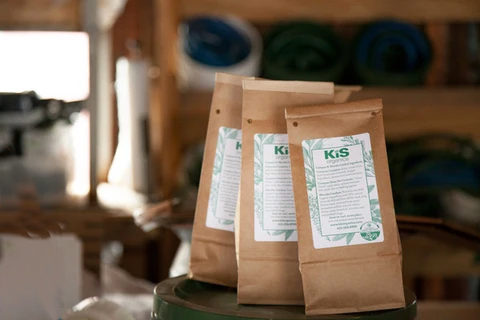I am making compost tea from the organics aact thread. I am using the first post recipe flower stage for 8 gal ro water, 1 cup bat gauno, 1 cup seabird gauno( pelitized),1 cup pure worm casting, 8 tbs organic molasses unsulfered, 8 tbs kelp meal. I started air pump at 2pm yesterday n I check this morning with foam at 14 inch would be more if too wasn’t on container. Is this good r bad. I posted the air pump n air stone I’m using. Only using 5 air stones 4 in corner with one in middle
Please don't do this, you will burn your plants and cause unnecessary issues. Unfortunately, a great deal of the information sticked on this forum is pretty outdated. Especially the AACT thread. Compost/nutrient teas are completely superfluous, and there is a difference between the two for sure. Please allow me to explain.
A compost tea is based on just that, compost.
Nutrient teas have the organic amendments, typically alfalfa meals, guanos, kelp meal, and so forth. I'll get into why the teas are superfluous later, but for now I want to address the dangers of using these nutrient teas and how/why you will burn your plants.
Imagine that a truly living organic soil is like a pantry, and the organic amendments that are in the soil are the various staples one would find in said pantry. You go to the grocery (hydro) store, and stock up on food (amendments) and put them all in your pantry (the soil). When your stomach (the plant's roots) starts grumbling, you pull out something specific from the pantry. You then casually eat, typically don't gorge yourself, and you get what you need. No more, no less.
By brewing this food into a tea, it is akin to you blending up a fuckton of those groceries, having a funnel shoved down your throat, and force fed every last piece of food you bought from the store.
Your soil should already have these nutrients within it, and you should be top dressing with more organic amendments and compost prior to the soil being depleted of any nutrients. This way, in combination with proper watering, soil aeration, etc, you will also have nutrients in your soil.
This has to do with the decomposition process. When the organic amendments are decomposing in the soil or as a top dress, they typically do so gradually. Brewing these ingredients into a tea makes these nutrients readily available. So your plants is getting these nutrients whether it wants them or not. This removes control of the plant's nutrient consumption from the microbes you worked so hard to cultivate, and instead places it right back in your shoulders and makes it akin to that of a grow with bottled synthetics. Not that I'm knocking synthetics, or people who use them, simply pointing out it isn't a "living soil" environment.
As a result, brewing these guano teas is a surefire way to cause issues and burn your plants. I would never under any circumstances recommend someone use these nutrient teas.
Compost teas are a bit of a different matter. The idea behind using compost teas is to "incorporate microbes into the soil", but ultimately this is superfluous. A properly made and taken care of soil should have everything it needs to ensure your soil has plenty of microbes already. The amendments mixed into the soil, as well as your top dressing will ensure there is ample food for the microbes in the soil to eat. Remember, in a living organic soil we are taking care of the microbes and
not the plant.
Everything one does in a living organic soil grow isn't about growing plants, its about cultivating the microbes. These microbes will then ensure that the plant survives.
That being said, shit happens. We forget to water, we let the soil dry up too much, maybe we slipped up a bit on top dressing. No problem. A product called "Grower's Recharge" is very affordable, and doesn't require the equipment that brewing teas does nor the time.
Guanos are also super hot, and by "hot" I mean they decompose at such a quick rate that it causes temps of 120-150F. You do not want that happening while there's roots inside of any soil with guano in it. In fact, read the back of the guano bags for the recommended amounts per plant. 1 cup of guano is a fuck ton even for many plants. And doing this with multiple kinds of guanos? Recipe for disaster.
Getting lighter nutrients like Neem Meal and Crab/Crustacean Meal are much more ideal because they decompose more gradually and will not cause issues with burn. Ingredients like guanos, blood meal, bone meal, alfalfa meal, cottonseed meal, and feather meal are definitely quality ingredients. But they must be used with caution so as to avoid "burning" your plant's roots.
Rather than make teas with the EWC and nutrients, follow the instructions on the back of each product's respective bag (cutting recommended dosage in half) and then cover that with the EWC you bought and just proceed to water as normal.




